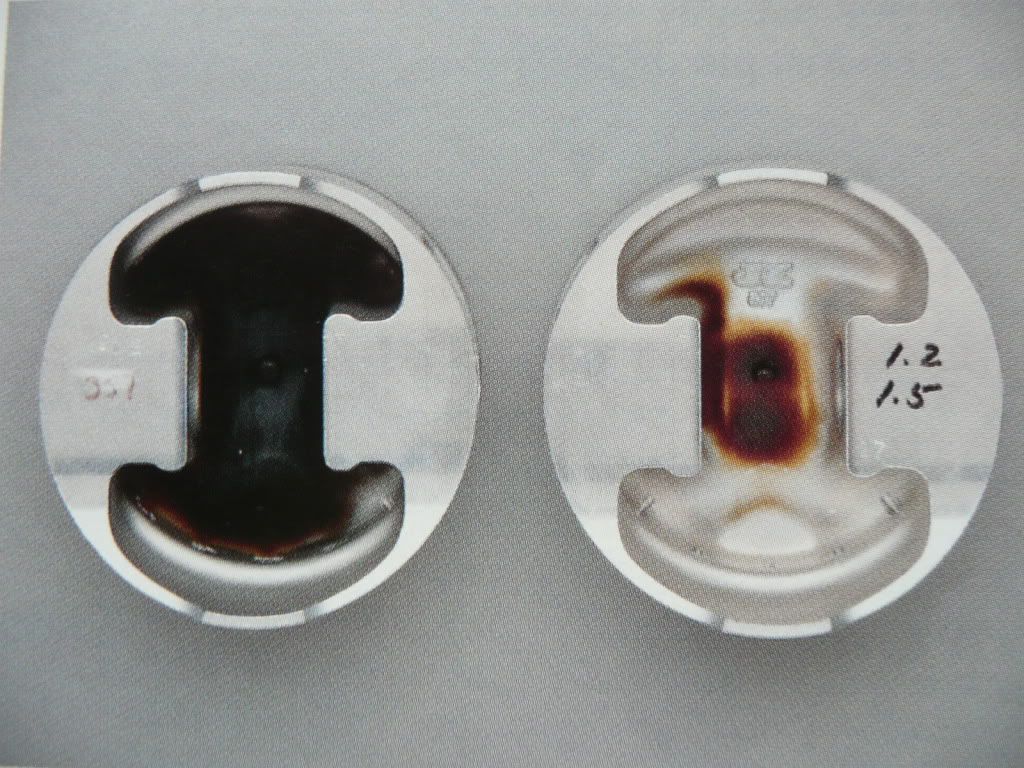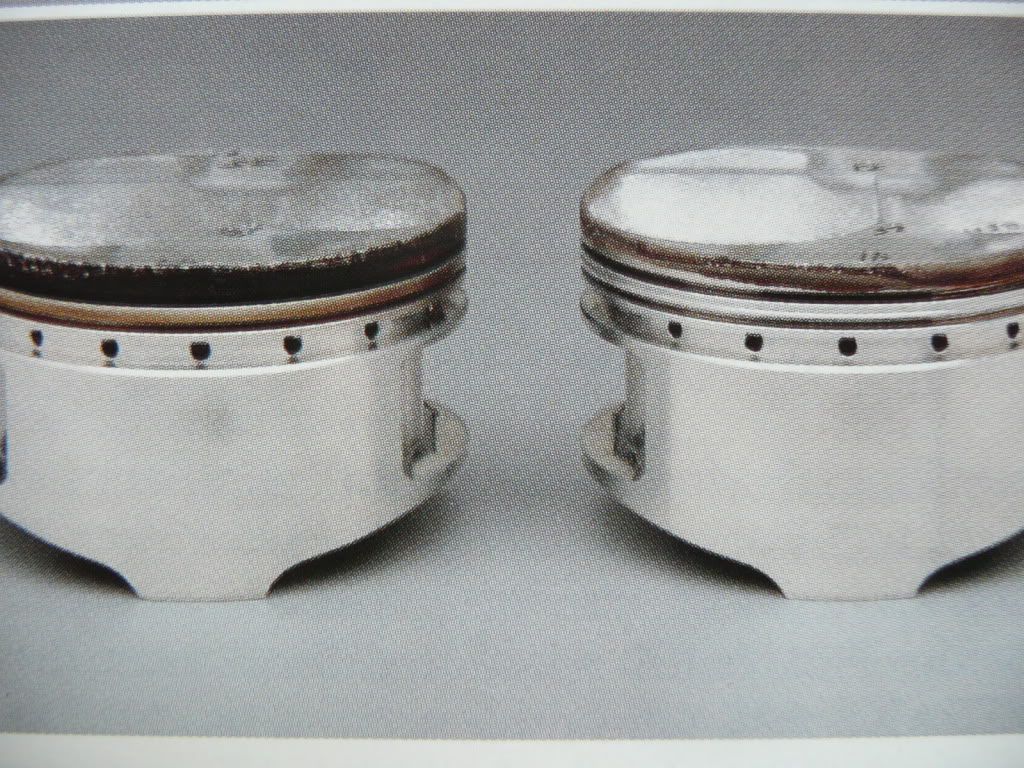NORTY
Well-known member
Back in 1994, during the Charlotte 600 NASCAR race, an oil company did a test with 2 Hendrick/Joe Gibbs car engines. Both were run the full 600 miles at race speed. Both were totally torndown post race. (They always are.) One was run with a synthetic oil and the other got "dino" oil. Both oils were the same viscosity (15W-40.) both engines were evaluated for everything including temperature (piston crowns were 600F for one oil and 616F for the other.)
Here is a pic of the pistons.
You tell me which piston was run with which oil...

Here is a pic of the pistons.
You tell me which piston was run with which oil...










